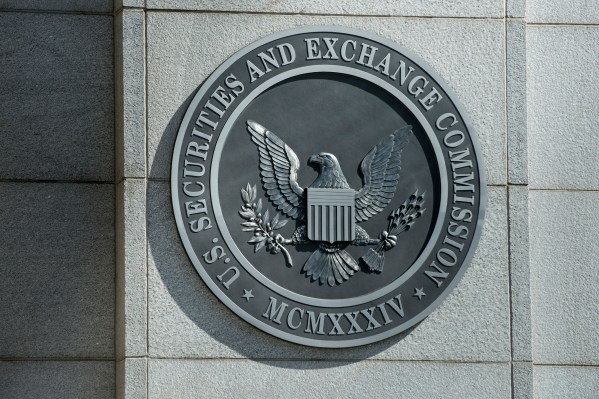Coinbase, one of the largest crypto exchanges globally, bit back on Wednesday during a hearing to decide whether it committed securities violations. Coinbase is motioning to dismiss the suit.
The U.S. Securities and Exchange Commission filed the suit in June 2023, just one day after it sued Binance, the largest crypto exchange by volume, over securities matters.
In the SEC’s claims against Coinbase, it also alleged that the 13 cryptocurrencies available for trading on the exchange were securities. The list includes major tokens like Solana, Cardano and Polygon. Although separate, the Binance suit also had 12 crypto assets mentioned as securities. The two had six overlapping tokens that the SEC marked as securities: SOL, ADA, MATIC, FIL, SAND and AXS.
Coinbase has requested that New York District Judge Katherine Polk Failla dismiss the suit because it alleges that cryptocurrencies aren’t under the jurisdiction of the SEC as shares in companies (stocks) are. The exchange, along with other crypto firms, thinks the SEC has overstepped its prerogative.
Failla questioned the SEC during the Manhattan court hearing. The judge requested that the securities-focused agency explain what elements of crypto assets constitute investment contracts. Failla noted her concerns that the SEC is asking for permission to “broaden the definition of what constitutes as a security.”
Patrick Costello, an SEC assistant chief litigation counsel, argued that because crypto assets are typically tied to a blockchain network or “enterprise,” they are similar to investment contracts. The agency argued that Coinbase is trying to make its own Howey test, the legal framework that determines whether an asset is an investment contract.
Typically, the SEC has a strong track record of winning its lawsuits, but given its recent past losses in other crypto-related suits — Ripple got a partial win in July 2023 and Grayscale got a favorable ruling in August 2023 — some people posting on X were optimistic for Coinbase.
Jake Chervinsky, chief legal officer at Variant Fund, said on X that Failla noted other problems with the SEC’s suit like its “poor understanding” of the technology. “This doesn’t mean Coinbase will necessarily win its motion for judgment on the pleadings,” Chervinsky wrote. “But it does display the true emptiness of policymakers’ claims that ‘the law is clear’ and ‘the industry just doesn’t want to comply.’ It’s a fight, but we have the high ground.”
After a five-hour hearing, Failla said she has questions and “some answers,” but declined to give a ruling on Wednesday.
Dave Rodman, founder and managing partner of Rodman Law Group, said in a statement shared with TechCrunch+ that he thinks it’s “highly unlikely” that the judge will rule in favor of Coinbase. “This doesn’t mean that the SEC is right and Coinbase is wrong, it’s just that it’s rare for a judge to grant a motion to dismiss at this stage.”
But Rodman noted that this is a “fairly extreme case” of a regulator wanting to “have its cake and eat it, too,” since the SEC deemed Coinbase sound enough to list it on the U.S. stock exchange when the company went public in 2021.
The hearing is another nail-biting moment for the crypto industry that has seen a number of court battles that have led to regulation by enforcement rather than new policies being made. Although there isn’t an official outcome yet, the judge’s pending ruling, or dismissal, could have huge implications on cryptocurrencies and how they are regulated in the U.S.
If the judge doesn’t dismiss the motion and rules in favor of the SEC, it could result in the cryptocurrencies mentioned in its suit being seen as securities, which would beholden them to the legal framework that others adhere to. This means each asset would have to comply with fiduciary obligations similar to what publicly traded companies have.
One of the many problems with this, though, is that the blockchain underlying the token would essentially become an owner, like a company is to its own stock. Given that blockchains aim to be decentralized, this could cause the waters to become extremely murky.
On the flip side, if the judge does dismiss the motion and rule in favor of Coinbase, it could open the door for more dialogue and policy creations around crypto assets and what bucket they fit into when it comes to protecting U.S. investors. As it stands, the SEC and CFTC (Commodity Futures Trading Commission) have openly stated that they view bitcoin as a commodity, for now.
But the two agencies don’t see eye to eye on everything. The SEC views most crypto assets (aside from Bitcoin) as securities. But per the CFTC’s filing in March 2023 against Binance, the regulator said certain digital assets, including Bitcoin, ether, Litecoin, as well as tether and the Binance USD, are commodities.
